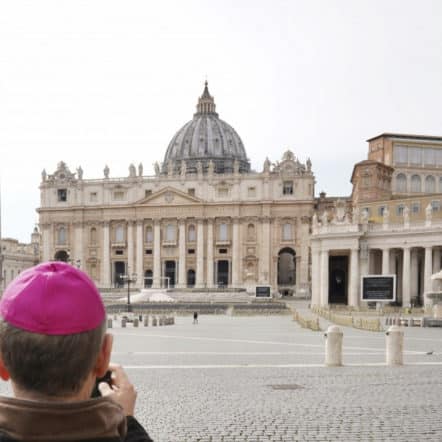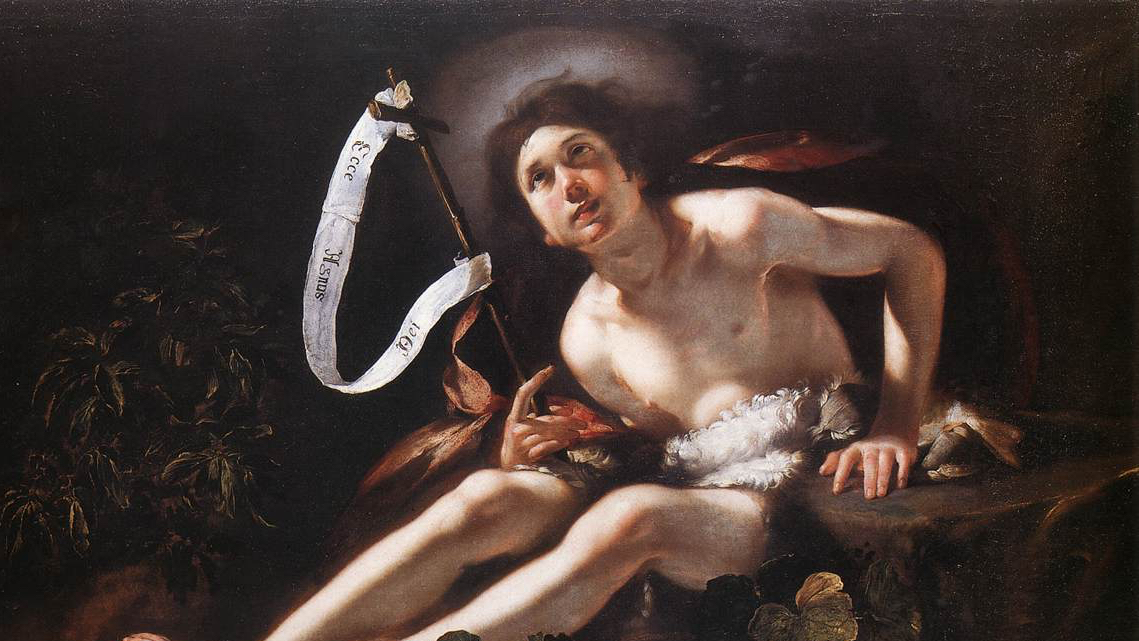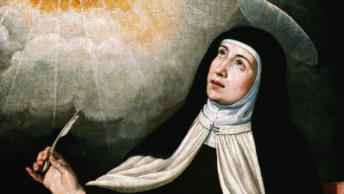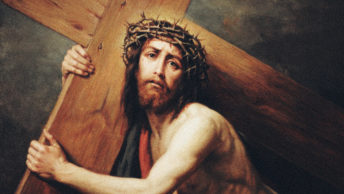The great inventor Thomas Edison was not a religious man, but he had a genuine respect for those who sincerely practiced their faith. For instance, for over sixty years he generously contributed to several orders of religious sisters, especially the Little Sisters of the Poor. Edison also had a great admiration for Pope Pius XI. When he heard that the Holy Father was overwhelmed with correspondence requiring his personal attention every day, Edison constructed a special dictating machine, finished in gold, silver, and ivory, and sent it to him. In gratitude, the Pope sent the inventor a medal with his personal blessing—a medal Edison treasured the rest of his life. Over the years there have been numerous expressions of admiration for the Church’s Popes, including many by non-Catholics. Will Rogers said of the Holy Father, “He is the only leader in the world today that we know what he means when he speaks.” When a group of senators and congressmen had an audience with Pope Pius XII, one of them was Senator Alben Barkley, who later served as vice-president. When the Holy Father raised his hand to give them a blessing, Senator Barkley, whose enthusiasm was greater than his knowledge of protocol, jumped up, grabbed his hand, and gushed, “God bless you, Pope; you are doing a wonderful job.” President Roosevelt’s personal representative to the Vatican, an Episcopalian named Myron Taylor, loudly praised the Pope and the Catholic Church’s system of governance. At the election of Pope Paul VI in 1963, a Lutheran church in Denver posted a message on its outdoor sign saying, “God bless Pope Paul VI. May God give divine guidance and strength to Paul VI as he would lead Christendom to greater love and concern for all nations.” The world was charmed by Pope John XXIII and by Pope John Paul I, and looked on with amazement at the popularity and greatness of Pope John Paul II (Tonne, Five-Minutes Homilies, p. 44). Many non-Catholics freely acknowledged the intelligence and integrity of Pope Benedict XVI, and were fascinated and inspired by the election and pontificate of our current Holy Father, Pope Francis.
Jesus, with His perfect knowledge of human nature, knew His Church would need leadership and authority to be vested in one particular person at a time, someone who would be His personal representative and a sign of unity and strength. When He chose St. Peter as the first Pope, Our Lord gave His Church a great blessing, and—in spite of some weak, foolish, and occasionally even evil men among the 266 Popes in history—this remains true today. The papacy is a blessing from God—but we can share in this blessing only by continuing to respect and obey the Pope the Lord has chosen for us.
The Letter of St. James states that “The prayer of a holy man is powerful indeed” (5:16), and because no one is holier than Jesus, His words are utterly reliable—as reflected in the Gospel of Matthew (16:13-20), when He says that Peter is the rock upon which His Church is built, that Peter and his successors have the power of binding and loosing, and that the gates of the netherworld—meaning hell—shall not prevail against the Church. No other institution or society—not even the United States of America—has a similar divine guarantee of continued existence up to the end of the world. As St. Paul exclaims in his Letter to the Romans (11:33-36), “How inscrutable are [God’s] judgments and how unsearchable His ways!” The world cannot understand what we know with absolute certainty because of our faith—but only by remaining firmly rooted in our Catholic heritage can we be sure of always possessing God’s truth.
About thirty-five years ago, during the reign of John Paul II, there was a book published called If I Were Pope (edited by Candida Lund, The Thomas More Press, 1987), in which over forty contributors described what they would do if they suddenly became Vicar of Christ’s Church. Some of the suggestions were naïve, silly, or theologically impossible; others had some merit. Almost all of the contributors eagerly accepted the challenge of telling the Pope what he should do, some of them writing at great length. That’s why my favorite entry was a very brief one of only thirty-two words by Vernon Walters, a former Army general and devout Catholic who also served as Ambassador to the United Nations under President Reagan. He wrote in all honesty and humility, “I am very comfortable with what Pope John Paul II teaches and quite honestly feel that it would be presumptuous of me to tell him what I would do if I were pope” (p. 134). In our human pride, it’s very easy for us to say “The Church should make these changes,” or “The Pope should do this or that,” or “Here’s what I would do if it were up to me.” What this attitude forgets is that we don’t know everything the Holy Father does, we don’t have the special divine graces associated with his office, and we’ll be judged by God on how well we respond to our own particular calling, not someone else’s.
Humility requires us to be obedient to the leadership of the Holy Father in Rome, to take his teachings seriously, and to support him through our prayers, our active membership in the Church, and by publicly defending him when he’s wrongly criticized or attacked. Popes are only human, and thus are far from perfect—but the Holy Spirit preserves them from making any errors in their teachings on faith and morals. Never in history—not even in the case of worldly, incompetent, and downright wicked successors of St. Peter—has a Pope taught, accepted, or approved of heresy, or false doctrine. Jesus will not allow that to occur, and therefore—if we wish to remain His true disciples—we must give our allegiance to the teachings of the Holy Father, and the teachings of those bishops in union with him. Sometimes we as Catholics take the leadership of the Pope for granted, or presume to think we know better than him—so it’s good to be reminded that even when other Christians don’t acknowledge his authority, they often look upon him with great admiration. If non-Catholics can recognize the usefulness and importance of the papacy, we, as members of the One True Church, will be held to an even higher standard. In the words of St. Cyprian, “If a man does not hold fast to this unity of Peter, does he imagine that he still holds the faith? If he deserts the chair of Peter upon whom the Church was built, does he still have confidence that he is in the Church?” The leadership of St. Peter and his successors is a great gift from Jesus to His Church. If we want to please Our Lord, we must acknowledge this gift, respect it, and defend it.








